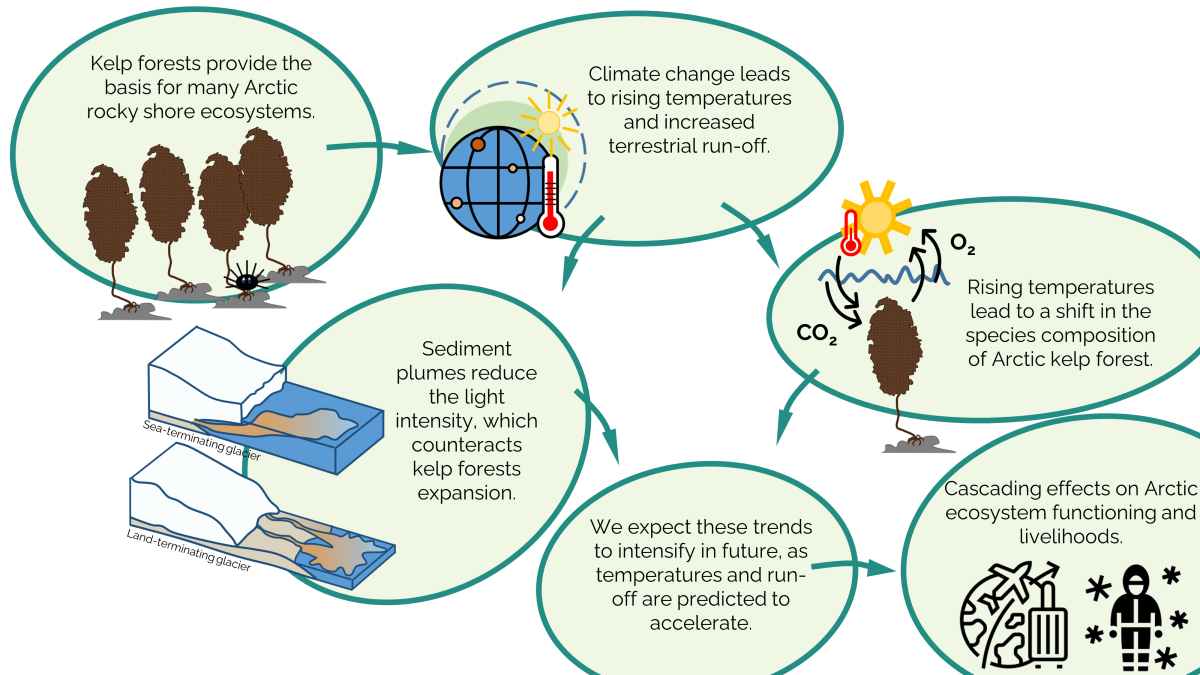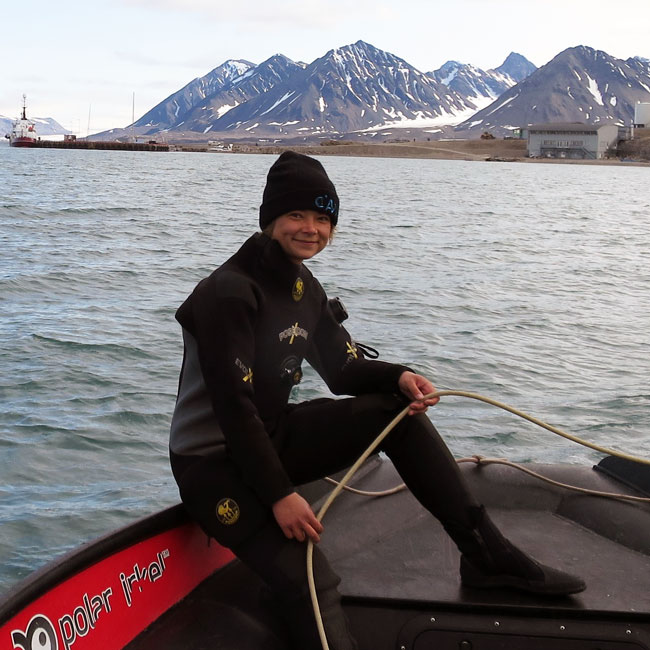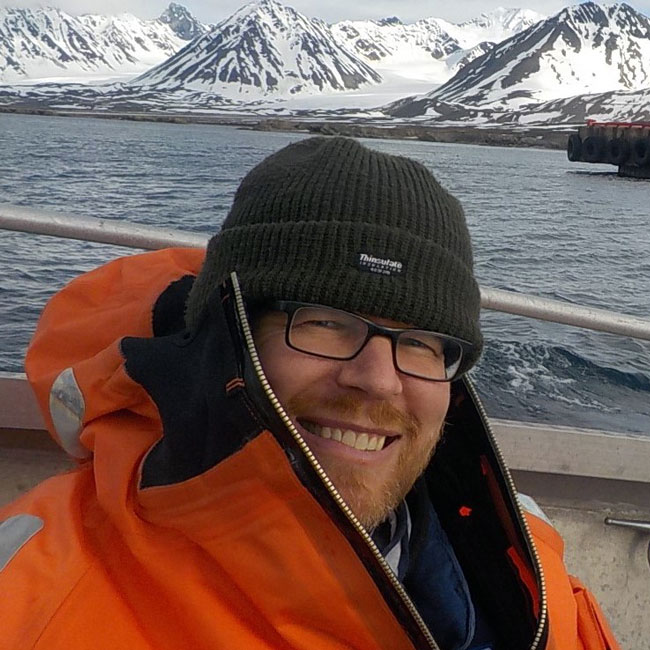Glacial retreat and rising temperatures are limiting the expansion of temperate kelp species in the future Arctic
[Published 30 January 2023]
Scientific Publications
Abstract
Kelps act as ecosystem engineers on many polar rocky shore coastlines. The underwater light climate and temperature are the main drivers for their vertical and latitudinal distribution. With temperatures rising globally, an Arctic expansion of temperate kelp species and an accelerating glacial melt is predicted. It was our aim to investigate the effects of retreating glaciers and rising temperatures on the potential habitat of kelps in Arctic fjords. We analyzed the underwater light climate of areas being influenced by different stages of glacial retreat (sea-terminating glacier, land-terminating glacier, coastal water) in Arctic Kongsfjorden. We observed reduced light intensities and a changed spectral composition in glacial meltwater plumes, potentially resulting in an upward shift of the lower depth limit of kelp, counteracting the predicted biomass increase in the Arctic. Furthermore, we studied temperature-related changes in light-use characteristics in two kelp species (Alaria esculenta, Saccharina latissima) at 3°C, 7°C, and 11°C. Rising temperatures lead to a significant increase of the compensation irradiance of A. esculenta. The dark respiration of S. latissima increased significantly, correlating with a decreasing carbon content. We detected no differences in photosynthetic rates, although the chlorophyll a concentration of A. esculenta was ~ 78% higher compared to S. latissima. Ultimately, temperature-induced changes in kelps light-use characteristics might lead to a changed species composition, as we found A. esculenta better adapted to polar conditions. We conclude that the deterioration of the underwater light climate and the temperature increase may drive substantial changes of the future Arctic kelp forest structure.

FACE-IT Scientists:
Sarina NIEDZWIEDZ
Marine Botany, University of Bremen, Germany
Sarina’s FACE-IT Projects
Role in FACE-IT:
• PhD student "Ecosystem Function Changes"
Kai BISCHOF
Marine Botany, University of Bremen, Germany
Center for Marine Environmental Sciences MARUM, University of Bremen, Germany
UBremen personal page
Kai’s FACE-IT Projects
Role in FACE-IT:
• Scientific Coordinator
• Member of the Executive Board
• Co-Leader "Policy Dialogue and Outreach"
• Co-Leader "Project Management"
• Leader "Ethical Requirements"
• Researcher "Biodiversity Changes"
• Researcher "Ecosystem Function Changes"


